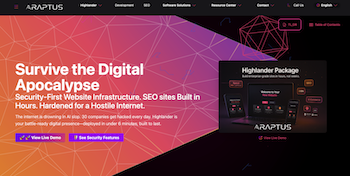
Introduction
Building an enterprise-level eCommerce platform is no small feat. While the end result can be incredibly powerful, it requires a significant investment in both time and resources. Before diving into such a project, it's crucial to understand the challenges, costs, and technical requirements involved.
The High Costs of Enterprise eCommerce
When it comes to enterprise eCommerce platforms, the price tag is a significant factor. Most businesses investing in these solutions spend upwards of $40,000 annually just to keep things running. These costs come from a variety of areas:
- Software Licensing: Everything is licensed—whether it's the platform itself or the necessary tools to keep it functioning. Often, these platforms are hosted on Windows-based environments, meaning additional licensing costs on top of the platform fees.
- Enterprise Hosting: Given the scale of enterprise eCommerce platforms, you won't be able to get by with standard hosting solutions. You'll need enterprise-level hosting, which is robust, scalable, and—unsurprisingly—more expensive than typical hosting plans.
Long Project Timelines
One of the biggest challenges with enterprise-level eCommerce is the time commitment. Even at the fastest pace, it typically takes three months to launch a project—at a minimum. That's if everything goes smoothly and according to plan. These platforms are not plug-and-play; they require in-depth customization, thorough testing, and complex integrations.
Licensing Overload
Every piece of software, feature, and integration typically requires some form of licensing. This includes everything from the core platform to the individual modules and plugins you may need to extend functionality. This can create a situation where you're not just paying a one-time fee for development, but are instead facing ongoing costs year after year to keep your system operational and up-to-date.
Hosting on a Different Level
To support an enterprise-level eCommerce platform, you'll need specialized hosting that can handle the load. This type of enterprise-level hosting provides the high availability, speed, and security that large-scale businesses require. However, it also means significantly higher costs. Standard web hosting just won't cut it when dealing with large traffic volumes, complex integrations, and heavy data processing.
Frequently Asked Questions
- Why does enterprise eCommerce cost so much?
Enterprise platforms come with licensing fees for both the software and the environment. These platforms are designed to handle complex business needs, which increases costs across the board. - How long does it take to launch an enterprise eCommerce site?
On average, a project will take at least three months to go from planning to launch. This is due to the amount of customization, testing, and integration required for these platforms. - Do I need special hosting for an enterprise eCommerce platform?
Yes. Enterprise platforms require robust hosting solutions capable of handling large volumes of traffic, providing high availability, and ensuring data security. - Are there any ongoing costs?
Yes. Licensing fees, hosting fees, and potential support costs all contribute to ongoing expenses beyond the initial development phase. - Why is licensing required for everything?
Many enterprise eCommerce platforms operate on a licensed basis, meaning you pay for the software, features, and hosting separately. This allows for customization but increases the long-term costs.
Why It Matters for Your Business
Choosing an enterprise-level eCommerce platform is a significant commitment. The upfront costs, ongoing licensing fees, and technical complexity can be overwhelming. However, with the right strategy and tools, it can also be a powerful asset for businesses looking to scale, grow, and enhance their online presence. Understanding these challenges can help you make a more informed decision when choosing the right platform for your business.
